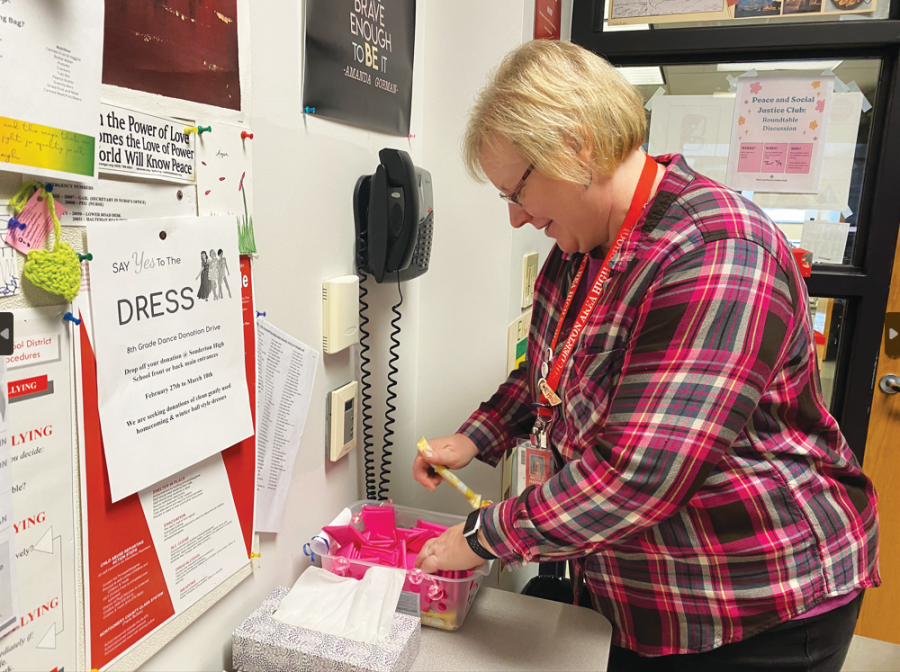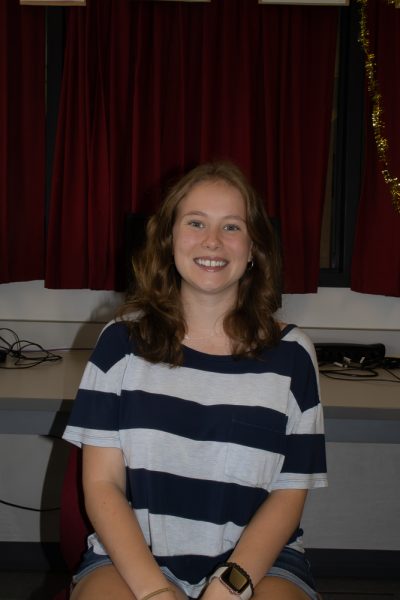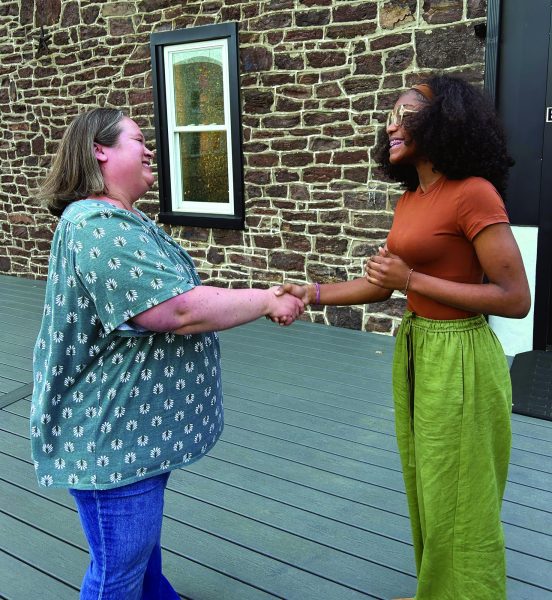Supplying menstrual products in ‘period’ of need
Organizations such as the Mitzvah Circle and Recycle the Cycle Club are working to end the problems some cisgender females face by collecting period products and speaking out.
Going with the flow…Working towards change, social studies teacher Nicole Harner organizes period products in her classroom to give access for students who may need them.
In an attempt to fight period poverty and stigmas, many people in the community are advocating for more period education and more accessible period products for anyone in need.
According to UNICEF, “Roughly half of the female population — around 26 percent of the global population — are of reproductive age. When biological females reach reproductive age, they begin to menstruate.”
Health teacher Chris Nenstiel describes the menstrual cycle as the uterus preparing itself for a possible pregnancy, with the period being the 3-5 day portion of the cycle in which the uterine lining sheds if a pregnancy does not occur.
According to Recycle the Cycle club co-president Erin Magee, though periods are a natural part of biological females’ lives, there are a lot of stigmas surrounding the phenomenon.
“Our culture is so weird about periods which is just very unnecessary because it’s just a normal, human, bodily function,” Magee said. “[This is] damaging because when girls get their periods they may feel uncomfortable.”
According to Nenstiel and Recycle the Cycle club co-president Ava Beskar, many people view periods as “gross” or “dirty.”
Nenstiel believes the best way to eliminate the stigma is through education and open discussions.
“The more we talk about it, the more normalized it is [and] the less people are freaked out about it,” Nenstiel said.
During a period, people who menstruate rely on different products to help manage the bleeding so they can go about their daily lives.
“You’ve got pads of all shapes and sizes and of all thicknesses for whether you have a very light cycle or a very heavy cycle,” Nenstiel said. “Some people prefer to use tampons, which again also go from light flow all the way up to super plus plus.”
According to the Mitzvah Circle, even though period products are necessary for people who menstruate, “one in four people struggle to purchase period products due to lack of income.”
A lack of access to period products is known as period poverty, which can cause people to miss out on school or work.
According to Mitzvah Circle executive director Fran Held, many people try using substitutes such as socks or toilet paper in lieu of pads and tampons.
Period products are also donated less often than other necessities.
“[Period products] aren’t something that a lot of people think about donating to homeless shelters,” Beskar said. “People usually donate food, socks and clothes.” In an attempt to make period products more accessible to students, the Recycle the Cycle club was started two years ago.
Beskar and Magee said that the club’s goal was to put period products in teachers’ rooms so students could quickly and easily have access to them.
The quest to make access to period products easier for students to get their hands on has continued through the teachers.
“This year, we had a bigger school effort to have [products] available. I put out an email to people in the community and said we could use some stuff and people listened,” Nenstiel said. “There are about 30 teachers in the building that openly have products.”
Nenstiel said that the second-floor student services office also has bags of various period products for anyone who may need them.
Mitzvah Circle is an organization in the community that collects, buys and distributes period products, along with other essentials, to families in need.
In 2021, Mitzvah Circle donated 488,752 period products. They accept any donations every Thursday from 9 a.m.-3 p.m.






